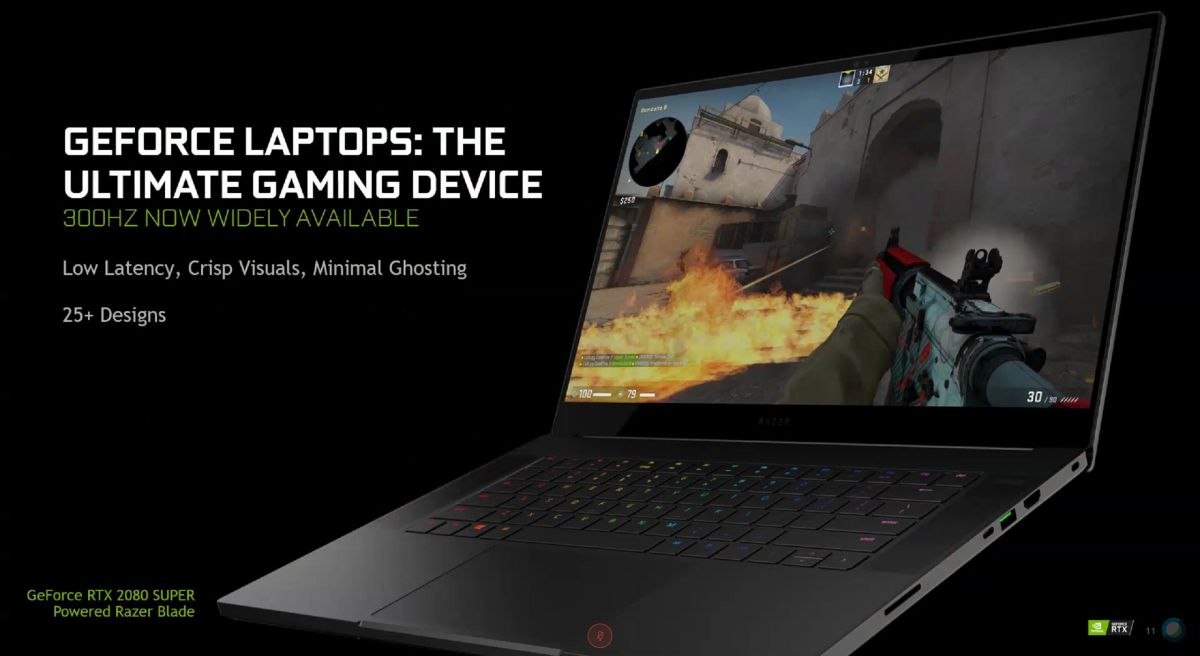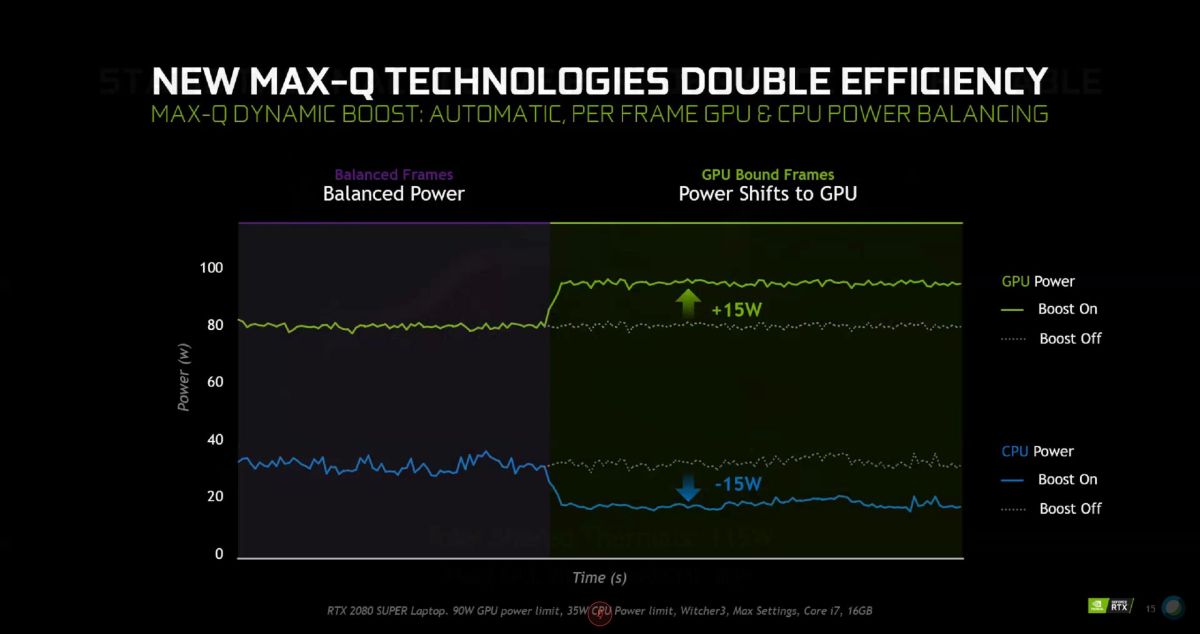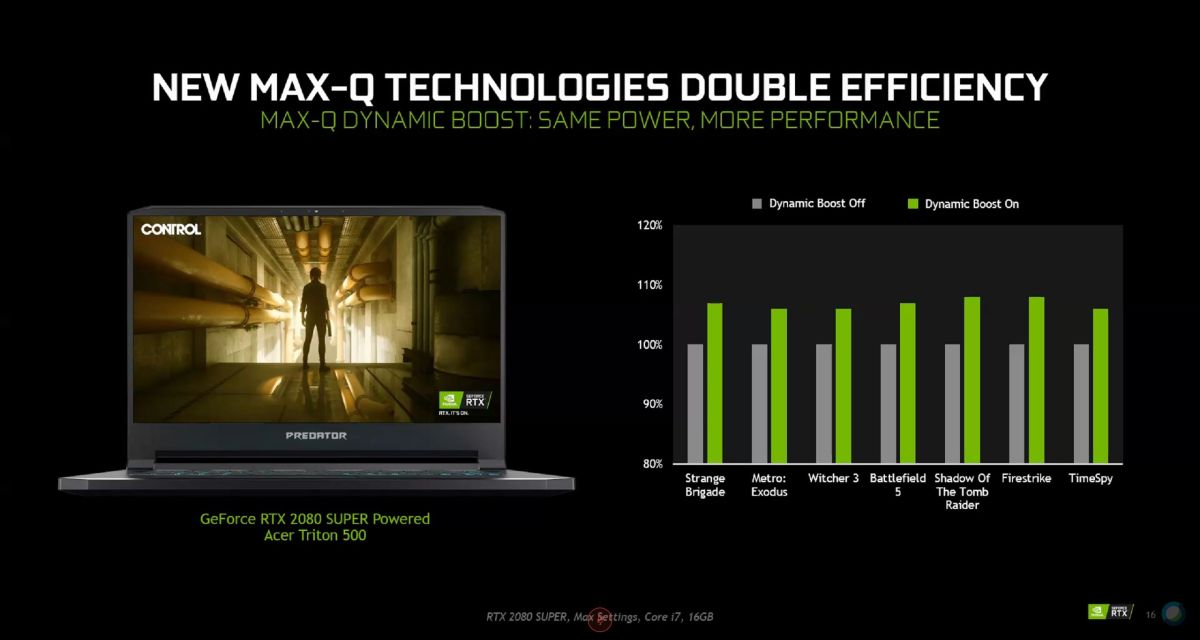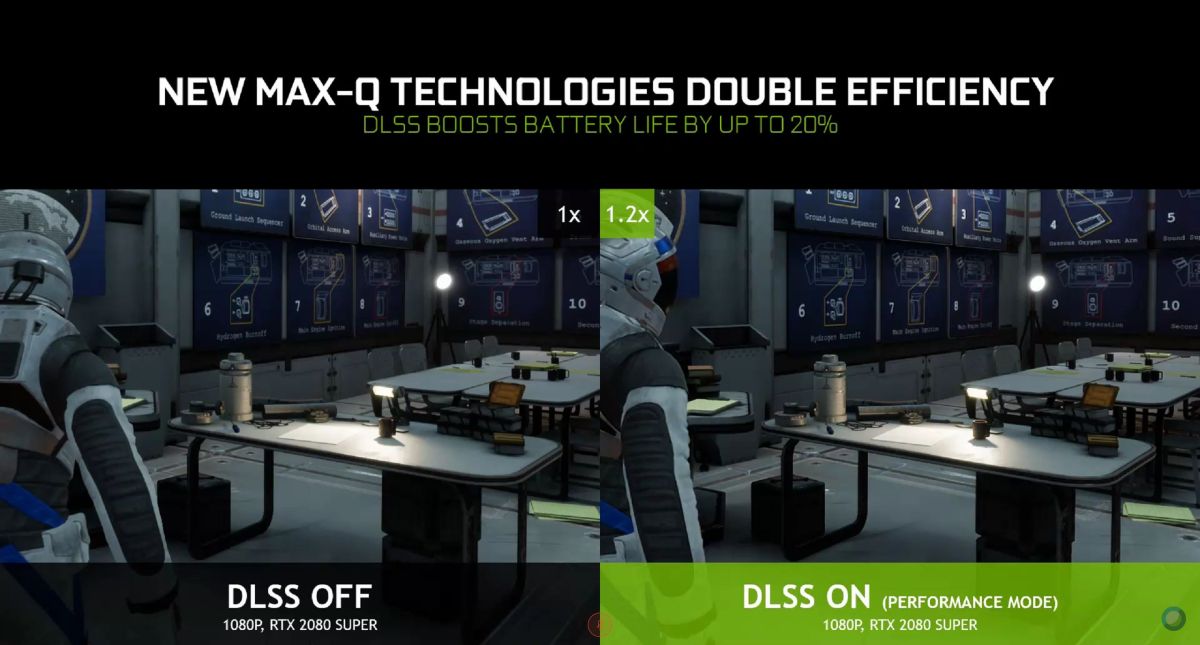Along with the new GeForce Super GPUs, consumers can also expect the new gaming notebooks to come along with other augmented features provided by NVIDIA brand partners. One such feature is the inclusion of laptop display panels with 300Hz refresh rate with a response rate as low as 3ms, as well as minimal ghosting.
Unsurprisingly, there are also Max-Q variants of the new GeForce Super mobile GPUs, but it should be noted that these GPUs have been updated with a new energy-saving feature to better suit the new GPUs. It’s known as Dynamic Boost, and according to NVIDIA, the feature automatically regulates power in the notebook. By increasing GPU and reducing CPU power consumption when the notebook is put to work. NVIDIA insists that the technology isn’t groundbreaking and that it merely allows for the new gaming notebooks to maintain the same amount of power used in notebooks from the previous generation. While doubling the performance output of the GPU.
That power efficiency of Dynamic Boost is also coupled with improved battery life. For example, NVIDIA says that a gaming laptop fitted with an RTX 2080 Super – running with the recently announced DLSS 2.0 super-sampling feature turned on – ran 20% longer than a non-Super gaming laptop. Although, why anyone would run such demanding programs or games while running on the notebook’s battery does raise some questions. On average, NVIDIA says that new gaming notebooks with its GeForce RTX Super GPU start at US$999 (~RM4400). For a base model with an RTX 2060 Super mobile GPU. It goes without saying that the price of a gaming notebook is relative to the prowess of the GPU in question as well, so it’s safe to say that a gaming notebook with an RTX 2080 Super isn’t going to run cheap.
In any case, we’ll just have to see what NVIDIA’s brand partners have in store for us.



